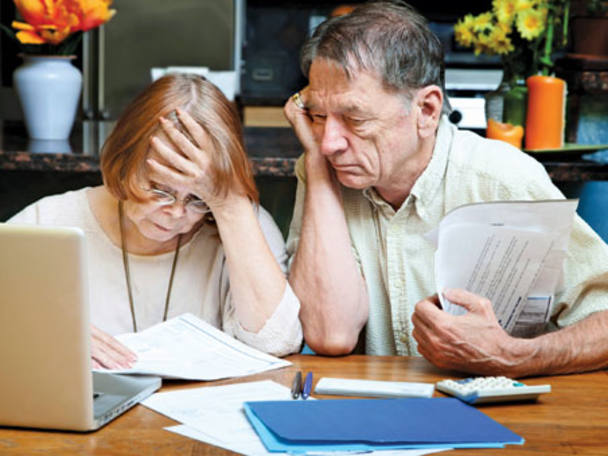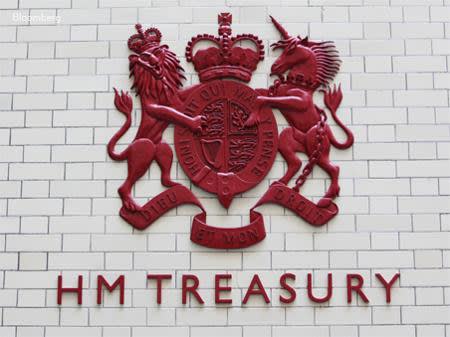An estimated 1.5m entrepreneurs will develop a limiting illness or disability in old age and will not have a pension to support themselves, an Investors Chronicle investigation has revealed.
The phenomenon will occur as a result of a potentially dangerous new trend in which self-employed people are rebelling against retirement saving as they aim never to give up work, despite a high chance of them becoming too ill to work long before they die.
Almost half (46 per cent) of the UK's 4.2m entrepreneurs currently have no private pension provision, according to Prudential. This means they will have taken the risky option of relying on their business, other assets or the state pension if they become too ill to work.
This level of savings rebellion isn't surprising when you consider the research found that 40 per cent believe they will work right up until they die. But separate health statistics suggest many of their working lives will be threatened by illness in their 60s and 70s, leaving those without pensions in an unprecedented financial muddle.
Labour Force Survey research shows more than three quarters (77 per cent) of 65-69 year olds have a health problem or disability that limits the kind of work they can do, with the most common work-inhibiting ailments related to the heart, blood pressure and back and neck pains.
The news should give the 1.9m pension-less UK entrepreneurs some cause for concern and may encourage self-employed savers to up their contributions, according to Julie Hutchinson, head of customer relationships at Standard Life.
Contribution levels for business people who do save into pensions has plummeted since 2008's financial crisis when many starved their pensions and funnelled the extra money into their businesses instead. But data from the National Association of Pension Funds (NAPF) reveals self-employed people actually contribute marginally more into private pensions than company staff.
Vince Smith-Hughes, retirement expert at Prudential, told the Investors Chronicle that self-employed people may live to regret "putting all their eggs in one basket" by prioritising their business over their retirement income, describing it as a "risky approach".
And he added: "The fact that the self-employed will not even qualify for the state second pension highlights that they really need to supplement their own provision by saving into a private pension from as early as possible."
And Darren Philp, policy director at the NAPF, said: "With people living longer, it is inevitable that people may have to work longer, but this may not always be possible as health issues can surface in old age. It is essential that all workers, self-employed included, carefully plan their retirement if they want to enjoy their later years because the reforms to automatically enrol staff into a pension open up pensions to millions of workers, but do not include the self-employed."
Ms Hutchinson says selling your businesses to fund your retirement is likely to be more difficult than you think, and says pensions make a "practical" tax-efficient fallback.
Turn pensions from a raw deal into a sweet set-up for avoiding tax
If you're self-employed you might feel as though you've got a raw deal when it comes to pensions. That's because the policies in this country weren't really designed with you in mind. Auto-enrolment, the government's latest initiative to get Britain saving into pensions will line the pockets of up to 8m pensioners. But not yours. Ordinary workers get 'free money' in the form of employer contributions when they pay into a workplace pension. But you don't. The only person who's going to give you extra money for your nest egg is you - but there are some tax-avoiding tricks you can use to boost your pension and save yourself shelling out thousands of pounds in tax bills.
Don't forget to reclaim higher rate tax relief
Because you're self-employed you'll automatically receive 20 per cent tax relief at source on your contributions, even if you're a higher-rate taxpayer. Annoyingly, it's up to you to reclaim higher-rate tax relief via a self-assessment return. If you weren't aware of this and haven't been claiming, don't stress, as you can reclaim tax relief from the previous three tax years.
And be aware that the lower limit for higher-rate taxpayers will be reduced to £41,450 in the tax year ending in 2014, meaning 300,000 more of you will receive 40 per cent tax relief on pensions.
Carry forward unused annual allowance
Pension contributions might be low on the list of priorities when you first set up a business, but leaving it too long before contributing may make it difficult to catch up in the future. The cap on how much you can contribute into a pension each year is £50,000, but you can carry forward any unused annual allowance from the previous three years (provided you were a member of a pension scheme during that time). This doesn't have to be the same scheme to which the contribution is made. For example, an old paid-up company pension scheme from before you became self-employed would be sufficient. However, there must be sufficient profits in the tax year to cover the increased contribution.
Reclaim your personal allowance through your pension
Once you start earning more than £100,000 a year, HMRC starts eating into your tax-free personal allowance, which currently stands at £8,105. They take £1 for every £2 of your income above the threshold, up to £116,210, when they take the whole lot. And between these two amounts, the 'marginal' rate of tax is 60 per cent.
But you can 'reclaim' your personal allowance by paying earnings over £100,000 into a pension scheme. So say you earn £116,210 and you pay £16,210 as a gross contribution to a pension, you will effectively create a £16,210 pension pot at a cost of £6,484 because of the tax saving.
Bring forward contributions ahead of new 45 per cent tax relief cap
If you pay yourself £150,000 or more per year, you could save up to 5 per cent of pension contributions if you make them before April 2013. This is because new tax rules being introduced in April will snip 5 per cent off higher-rate taxpayers' top tax rate. Planners are urging savers to bring pension contributions forward before the new rules come in. The reason for this? Quite simply, if contributions are brought forward to this year then tax relief will be given against this year's current 50 per cent rate.
The key here is to check if you have unused allowance from the previous three tax years and that your earnings in the current year support the contribution you want to make. For example, if you earn £250,000, and have an unused annual allowance of £125,000, you could pay a gross contribution of £125,000 in the current tax year and get 50 per cent tax relief on up to £100,000 of it (£50,000 relief). If you were to make the same move in the next tax year, you would only get 45 per cent relief (£45,000), so you'd lose £5,000.
Buy your business premises through your Sipp
This could save you thousands in unnecessary tax bills. You need to have enough money in your self-invested personal pension (Sipp) to buy the property, but you can borrow up to 50 per cent of its net value to help cover the cost and, if you have any other pension schemes, you can consolidate them with it to increase its value. Once your Sipp has bought the property, it becomes your landlord and you must pay it market value rent. The great thing about this is that you will avoid corporation tax or income tax, while making significant pension contributions. You will also avoid capital gains tax when you come to sell the property. But Claire Trott, pensions technical manager at Suffolk Life, warns that you must ensure you pay the correct amount every month or you will face a hefty 55 per cent tax on unpaid rent. Setting up a direct debit is the best way to avoid this potentially costly situation.












